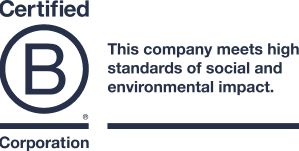We're often asked, "isn't climate change more important than curbing plastic use or cleaning up the ocean?" It's a valid question and one that has far reaching implications.
FiveADRIFT's Philosophy
First, a little bit of how we think about it at FiveADRIFT. Imagine the Earth as a ship. On a ship, everyone has a job - the cook takes care of feeding the crew, the engineer takes care of the ships systems such as propulsion and fresh water makers, and the navigator makes sure the ship is heading in the right direction. Take away one of these functions and the ship can't operate.
FiveADRIFT acknowledges that if we don't solve climate change, there's little else that matters. Of course we operate FiveADRIFT by buying wind and solar power, offsetting carbon emissions form shipment and more in order to be carbon negative. However, like any good ship, if everyone is focused on the same task, no progress is made elsewhere and the system doesn't work. We are systems thinkers and have chosen to concentrate our efforts on team ocean cleanup. In addition to removing plastic from the ocean for every plastic-free luxury beach towel we sell, we encourage everyone and every company to reduce plastic consumption.
It just so happens that reducing plastic consumption is also helpful to curb climate change.
The Climate Implications of Plastic
A recent CIEL report wants that the greenhouse gas emissions from plastic significantly hinder our ability to keep the global temperature rise below 1.5˚C. Without signifiant changes in production, by 2030, climate change gas emissions from plastic could exceed 1.34 billion tons per year because almost all plastic is made from fossil fuels. The lifecycle of plastic releases climate changing gas emissions at all stages of its lifecycle.
When sunlight hits plastic in the ocean and on land, it has been found to release the greenhouse gases ethylene and methane. As the plastics break apart, the emissions increase:
"Environmentally aged plastics incubated in water for at least 152 days also produced hydrocarbon gases. In addition, low-density polyethylene emits these gases when incubated in air at rates ~2 times and ~76 times higher than when incubated in water for methane and ethylene, respectively. Our results show that plastics represent a heretofore unrecognized source of climate-relevant trace gases that are expected to increase as more plastic is produced and accumulated in the environment."
FiveADRIFT's focus on removing plastic from the ocean was sparked by the horrific impact these plastics have on marine life and we continue to use that as our North Star for moving the organization forward. By the same token, we're encouraged by the contribution that reducing ocean plastics makes to reversing climate change.


